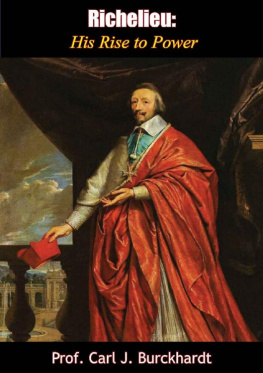First published 1991 by Pearson Education Limited
Published 2013 by Routledge
2 Park Square, Milton Park, Abingdon, Oxon OX14 4RN
711 Third Avenue, New York, NY 10017, USA
Routledge is an imprint of the Taylor & Francis Group, an informa business
Copyright 1991, Taylor & Francis.
The right of R. J. Knecht to be identified as author of
this Work has been asserted by him in accordance with
the Copyright, Designs and Patents Act 1988.
All rights reserved. No part of this book may be reprinted or reproduced or utilised in any form or by any electronic, mechanical, or other means, now known or hereafter invented, including photocopying and recording, or in any information storage or retrieval system, without permission in writing from the publishers.
Notices
Knowledge and best practice in this field are constantly changing. As new research and experience broaden our understanding, changes in research methods, professional practices, or medical treatment may become necessary.
Practitioners and researchers must always rely on their own experience and knowledge in evaluating and using any information, methods, compounds, or experiments described herein. In using such information or methods they should be mindful of their own safety and the safety of others, including parties for whom they have a professional responsibility.
To the fullest extent of the law, neither the Publisher nor the authors, contributors, or editors, assume any liability for any injury and/or damage to persons or property as a matter of products liability, negligence or otherwise, or from any use or operation of any methods, products, instructions, or ideas contained in the material herein.
ISBN 13: 978-0-582-43757-9 (pbk)
British Library Cataloguing-in-Publication Data
A catalogue record for this book can be obtained from the British Library
Library of Congress Cataloging-in-Publication Data
A catalog record for this book can be obtained from the Library of Congress
.......
Cardinal Richelieu shares with Bismarck the distinction of being the only foreign statesman to have become part of the store of knowledge of the average educated English person. Why that should be is a matter for speculation. His achievement in itself is not a sufficient explanation: though substantial, it was no more important than those of some other statesmen whose fame has remained confined to their own countries. Nor did Richelieus career impinge particularly on Englands history. His role in defeating Buckinghams expedition to the le de R hardly justifies the exceptional place he occupies in English historical thinking. Far more significant perhaps was the cardinals assiduous cultivation of his own posthumous reputation. By commissioning historians to glorify his achievement and by committing his political ideas to paper, he did everything possible to ensure that he was not easily forgotten or underrated. But that begs a further question. Until the mid-twentieth century the cardinal was seen by Englishmen less as a hero than as a villain. Machiavelli, in their perception, was his closest cousin: a devil and a popish one at that. How did this come about?
The cardinals popular reputation in nineteenthcentury England probably owed more to fiction than history. In 1826 Alfred de Vigny, one of the pioneers of the romantic movement in France, published his historical novel, CinqMars, in which Richelieu was portrayed as a cruel tyrant. Among English readers of CinqMars was Edward BulwerLytton, who was inspired to write a play in blank verse, called Richelieu or the Conspiracy. The author was not entirely hostile to Richelieu. He saw him as Frances dictator but also her benefactor; a man with a dual character at once witty and sinister. He captured the interest of the famous actor Macready and tried to make him see Richelieus dramatic potential with one leg in Comedy, the other in Tragedy. Actors in those days took history seriously. Macready read CinqMars and, on learning that de Vigny was in England, arranged to see him. He will be splendid in Richelieu, de Vigny prophesied, and I will have much to tell him about this man whose intimate enemy I was during the time I was writing CinqMars. On 24 February 1838 Macready reported to BulwerLytton: Count de Vigny gave me more than two hours on Thursday and brought the man Richelieu directly before me. The instruction served Macready well. When BulwerLyttons play was staged at Covent Garden in 1839 in the queens presence it was much acclaimed. Frequent revivals ensued, and Henry Irving presented it at the Lyceum no less than four times. Thus did Richelieu become a well-known stage villain in England. He also became known to a wider public through the popular novels of Alexandre Dumas, particularly The Three Musketeers. In 1896 he reappeared in Stanley Weymans popular novel Under the Red Robe, which was successfully dramatised at the Haymarket theatre. In the face of so much public exposure is it surprising that Richelieu became almost a household name this side of the Channel?
In recent years Richelieu has become known to sixth-formers and undergraduates less for his dramatic persona than on account of his frequent appearances among examination questions on early modern European history. Past generations of historians have presented him as the restorer of Frances greatness following her disastrous civil wars and as the founder of that absolute monarchy which reached its zenith under Louis XIV. That picture remains broadly true, but modern research has toned it down in various ways. The attention of a new generation of historians has been focused on a number of hitherto neglected aspects: the nature of absolutism, the effectiveness of royal power in the provinces, the impact of the Thirty Years War on taxation, the causes of social unrest. Among the more notable contributions made in these fields are several studies of popular risings under Richelieu by French scholars. The nature of absolutism has been hotly debated by Porchnev, Mousnier and Beik. William Church has examined Richelieus concept of reason of state. The role of the











